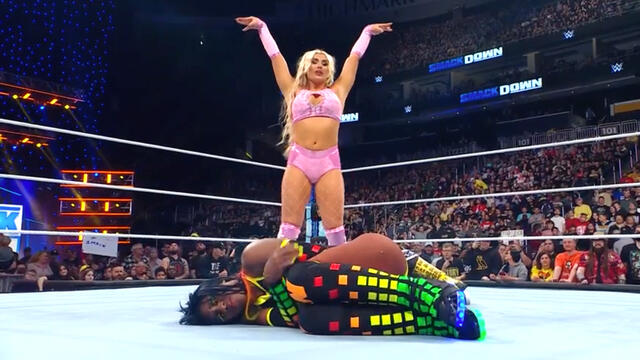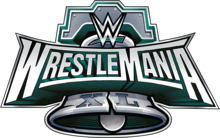Code-"Breaking the Law": Chris Jericho & Judas Priest: Part two

In part two of WWE.com's exclusive Superstar to Superstar interview, Chris Jericho talks with heavy metal legends Judas Priest about the 30th anniversary of their seminal album, British Steel.
Read part one of the interview. You can purchase British Steel: 30th Anniversary Edition by clicking here.
CHRIS JERICHO: What is it about British Steel's track list that keeps fans both young and old tuned to Judas Priest?
ROB HALFORD: Every year you're going to try and come up with something different than the last release. We never want to replicate a previous offering that we've made. At the time, we were still relatively young and growing as a band. It may also have been that we didn't have the luxury of six months or a year to make a record. That's why these tracks are so uncomplicated, especially the two radio tracks, "Breaking the Law" and "Living After Midnight." We had such a narrow time frame; I can't remember us ever sitting back and saying, "That's going to be a hit."
K.K. DOWNING: British Steel is definitely a "people's album" without the fancy frills and spills. It is direct and to the point, and whatever your age, everyone likes to be a bit of a rebel now and again. The album seemed to have all the ingredients that people were hoping for -- it brought fans together, gave them a source of music and a band that they could relate to and feel like a part of.
GLENN TIPTON: I certainly think it is the simplicity of the album and Judas Priest's sound. "Breaking the Law," for example, is really a simple riff, but it is very effective. There were songs we wrote together that just really fell into place, and those were the best songs. I think that simplicity is what inspires other bands and fans today.
JERICHO: With British Steel held in such high regard among the hard rock community, why did you only recently decide to perform the album in its entirety on tour [in 2009]?
HALFORD: A lot of it was to celebrate the thirtieth anniversary and for the DVD [available with the re-release]. I love how we open with the first track, "Rapid Fire." When Glenn plays the opening riff of that song, it really sets the tone, and the first words you hear are pounding the world like a battering ram. Using that edgy sound is a great way to kick off any show.
DOWNING: Looking back at the 30 years since British Steel's release and the reception to last year's tour, I think we all now realize that we should have played the whole album live much sooner!
TIPTON: It was actually the first time we had performed any album in its entirety live. As soon as we got on stage and played if from start to finish, it was a great feeling. It was really a big landmark in our history, 30 years of British Steel and the first time we played an album start to finish. It was our way of saying thank you to the fans. There's really no better album to play than British Steel. Every night we performed it was a massive occasion.
JERICHO: How does it feel to be pioneers of a new generation of music? I'm sure you take great pride in that, but how does it feel that 30 years later, Judas Priest is still one of the top bands on the scene?
HALFORD: One of the reasons that bands like Judas Priest, AC/DC and Black Sabbath survive today is because we've always had these amazing hardcore followings, and we always acknowledge the fans, similar to the WWE Universe. I don't know what it is, but for us, at the end of the day it has got to be about the music and how it reaches the fans.
DOWNING: I think it is because of the overall sentiment and message of the album that has spanned three decades. The album could have easily been titled Almanac for a Teenage Rebel. As I mentioned previously, I think it is the way that British Steel unites fans; no matter what age you are, everyone wants to be a bit of a rebel every now and then.
JERICHO: One thing that strikes me is the way that Judas Priest has become multi-generational. With new technology such as Facebook, Twitter, and video games like Guitar Hero and Rock Band, a new generation has been introduced to your music. Do you see the advantages of today's technology?
HALFORD: I've met longtime fans who introduce me to their children, and they too are fans of Judas Priest, and it's exciting. I think it comes down to the accessibility of the music, from the days of vinyl to today's digital downloads. Today's technology, like those video games, have introduced many younger fans to our music. Personally, I never thought I'd see such incredible inventions in my short life, especially in the studio and in the way music is made.
TIPTON: I think it's a good thing that a lot of kids have discovered the band not just through their parents, but through the Internet and other technology like video games. We certainly continue to strike a chord with older and newer fans.
HALFORD: It's funny too, because when we were growing up we hated the music our parents listened to. Now it seems to be going in a different direction. You aren't aware of it until you are on stage, and you look out and see the different ages in the crowd.
JERICHO: Growing up, were you a fan of wrestling at all? Do you see a connection between heavy metal and WWE?
HALFORD: Absolutely! My mother was a wrestling nut. I only went to a couple of events as a kid, but I used to watch wrestling every Saturday afternoon and my mother was insane for it. I love wrestling fans because they are just like heavy metal fans. I remember Mick McManus from Britain, and my favorites were always WWE Hall of Famers The Sheik and Gorgeous George.
TIPTON: The wonderful thing about wrestling is how it's been around for so long. It's like rock n' roll -- it's always been there. And the wonderful thing about playing the album live is that it is like a WWE event. We involve the audience. They are as much a part of the show as we are.
HALFORD: Particularly through the 1980s, there was a great connection between wrestling and music. And today, a WWE live event is just like a metal concert, with the music, the stage, the lighting and the pyrotechnics. There's really nothing like it.
JERICHO: Do you think that 30 years from now, British Steel's influence will still be as strong as it is today and fans will continue to rock out to the album?
DOWNING: It would certainly be nice to think so, but I will always be eternally grateful for what the band has received to date, from what we consider to be the most loyal fan base that any band could possibly wish for.
TIPTON: You know, if we're still alive, yeah, it will still be as big as it is now, I would hope!
Read part one of the interview. (Buy British Steel: 30th Anniversary Edition by clicking here.)
WWE Shows Latest Results
SmackDown results, April 19, 2024: Tiffany Stratton introduces Bayley and Naomi to Tiffy Time with a sneak attack
Full ResultsWWE NXT results, April 16, 2024: Trick Williams defeats Carmelo Hayes in a Steel Cage Match
Full Results












